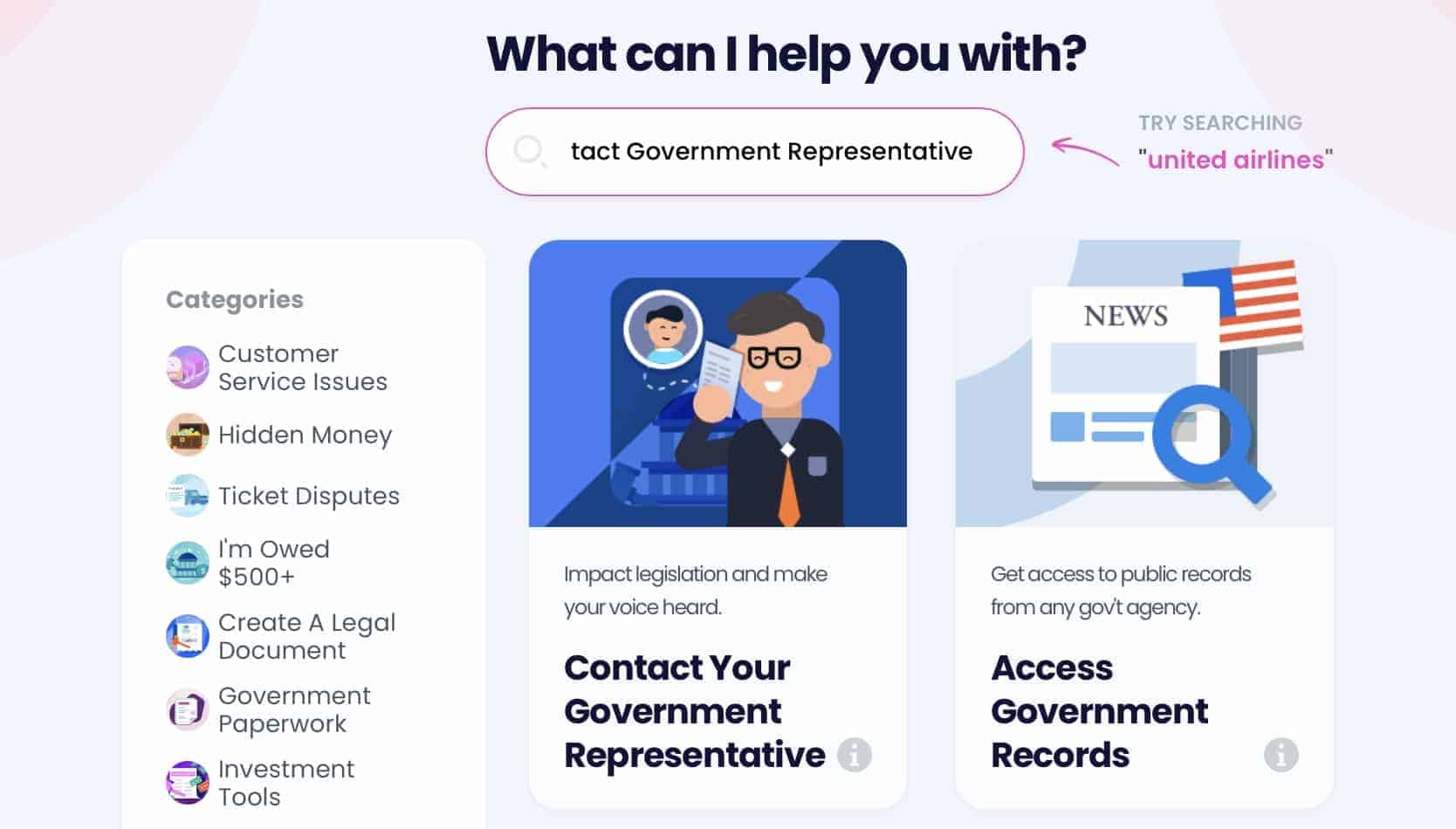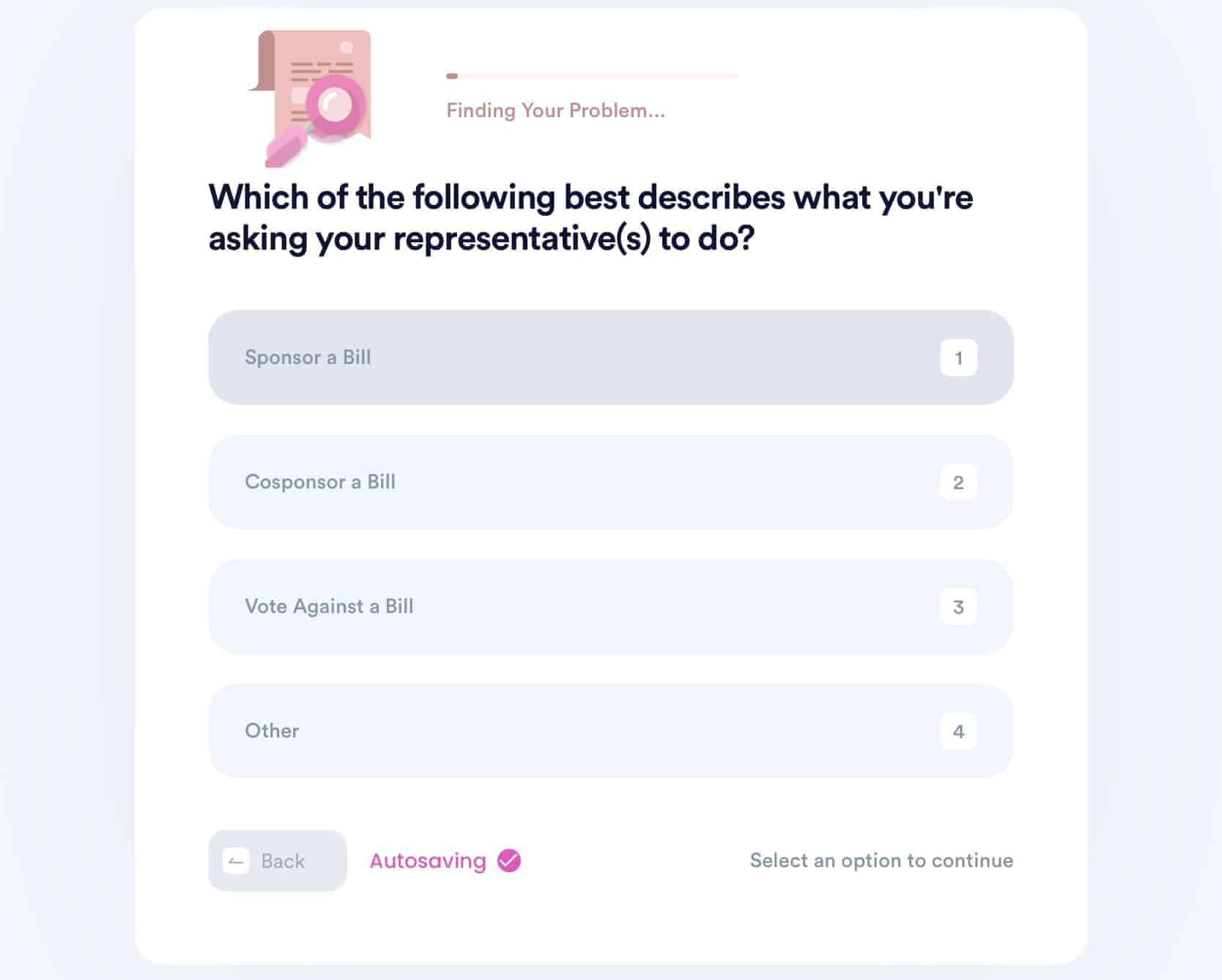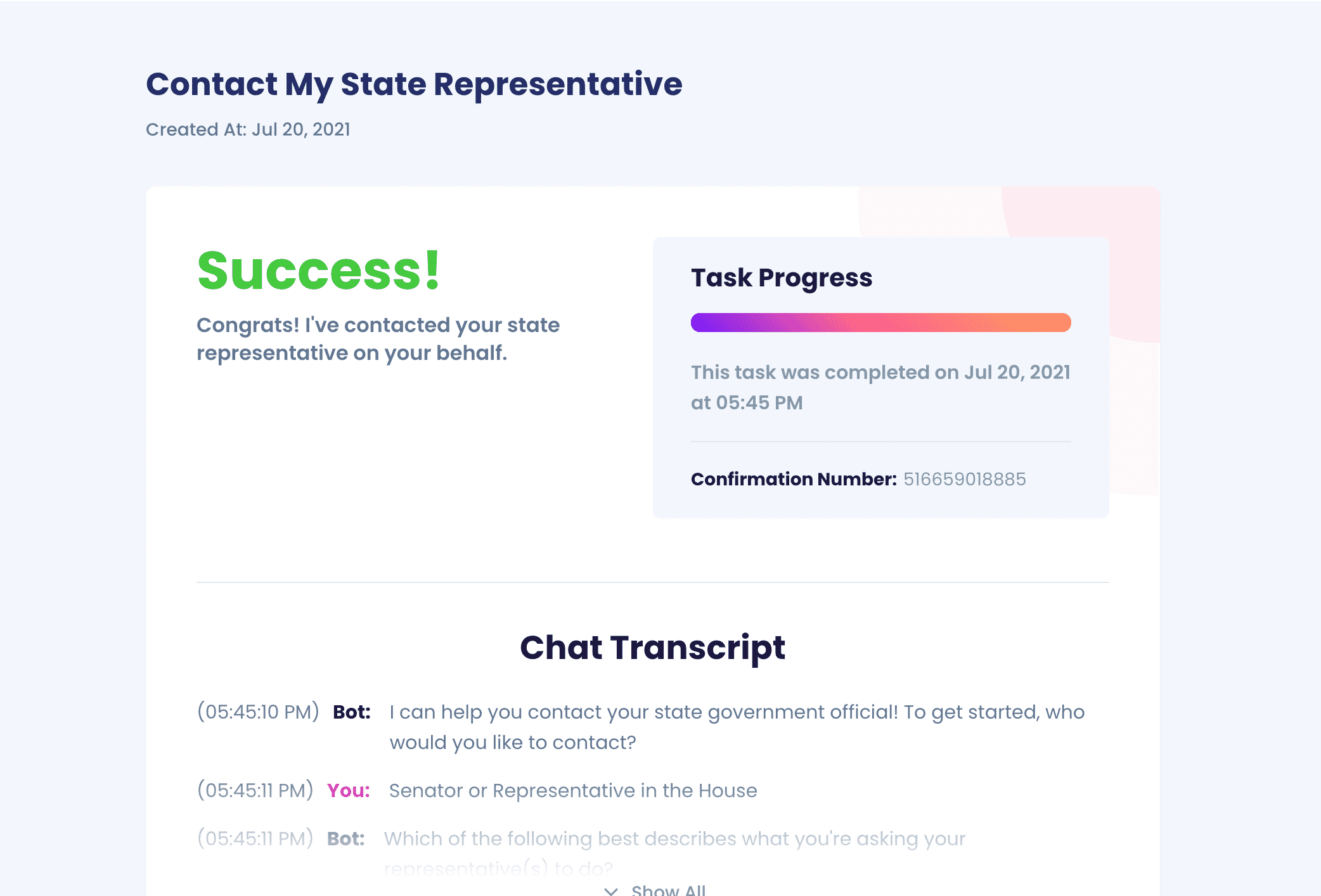How to Contact My Senator
You may have the urge to participate in a civic act but the first question to stump you is, “how to contact my senator?” In this article, we will provide you with all the contact information you need to get in touch with the senate and your state’s senator. We will also introduce you to DoNotPay, an app that will help you contact your senator easily and effectively.
What is the Job of a Senator?
A senator's job is to make sure that the voice of an average citizen is heard in Washington. He or she is tasked with acting on behalf of their constituents in the legislative session. Each state has two senate representatives and their jobs include the following:
- Representing the people —The senator's responsibility is to communicate with constituents about their issues and concerns and fight for their rights in legislation. Each senator has an office that takes phone calls and emails from citizens who want to voice their views.
- Sharing information with the public — It is a senator's job to gather, consolidate, and disseminate information to different members of the community. They can do so by making visits to schools and organizations and holding press conferences and speeches.
- Serving and committee — A part of their fiscal duty is to be assigned to a committee that has a wide variety of focus such as, business, agriculture, national security, healthcare, and many more.
- Identify and pass new laws — It is a senator’s duty to identify problems and provide solutions by passing new laws. They can appoint staff to research topics and identify issues in the community. It is also their job to find support for a bill that they are pushing for.
How to Contact the Senate
Make sure to connect with your state’s senator when emailing about a public policy issue or when requesting personal assistance. Some senators’ websites let you fill out a form to send an email while others publish their email addresses on the website. Take note that although senators acknowledge messages from another senator’s constituent out of professional courtesy, they will not formally respond to requests or comments.
Here below are the contact details of the senate:
| The Senate’s Contact Information | |
| Address | To reach the U.S. Senators:
Office of Senator (Name) United States Senate Washington, D.C. 20510 To reach the Senate Committees: (Name of Committee) United States Senate Washington, D.C. 20510 |
| Phone | United States Capitol switchboard: 202-224-3121 |
| Find the email you are looking for here | |
Contrary to what most people think, contacting your elected representatives works. It is your civic duty aside from voting during elections. Here are three reasons why calling your senator can make a huge difference:
- Senators care about re-election and constituents hold the key to them being elected into office again.
- If the senator’s office receives calls and emails in large numbers about the same concern, it compels them to vote in a way that represents what their constituents want.
- An election doesn't happen all the time but contacting your elected official holds them accountable for fighting for their constituents even outside the election season.
How to Reach a Senator on Your Own
Getting in touch with your senator's office is an effective way to voice your opinions especially on topics that may affect your daily life. However, take note that in most cases, you will not be able to speak to the senator directly. A legislative aide will keep track of calls and emails on different topics. Here are some tips to remember when trying to reach a senator’s office:
- Research the basic information about your topic so you know the correct facts when you are presenting them. Specifically describe the issue that you are calling or emailing about and explain your opinion clearly.
- If you have professional expertise on an issue, mention it. This will help establish credibility and you may even help provide accurate information to the senator's office.
- Keep your call short because legislative aides receive a high number of calls every day
- If the vote on your issue is scheduled, make sure to phone or email near the time.
- Instead of calling the Washington office, get in touch with the senator’s office in your district.
DoNotPay Can Help You Contact Your Government Representative!
In most cases, calling or emailing your elected representative is easier said than done. Talking to a senator over the phone can be intimidating and drafting a professional email may not be possible if you don't have the right knowledge. That is where DoNotPay can help. Our service bridges the gap between constituents and their elected representatives. Our app helps you get in touch with elected officials without the stress and the hassle. All you have to do is
- Search "Contact Representative," or "," on and select the Contact Your Government Representative product.

- Select whether you want to contact your Senator, House Representative, Governor, President, or Mayor.

- Explain why you're contacting your representative and provide details.

- That's it! All you need to do is wait while we submit your response to your government representative's site.

DoNotPay will handle the rest and deliver your concerns to the correct official.
DoNotPay Helps with More
- Apply for chargebacks and refunds
- Sign-up for clinical trials
- Apply for copyright protection
- Fight against email spam
 By
By